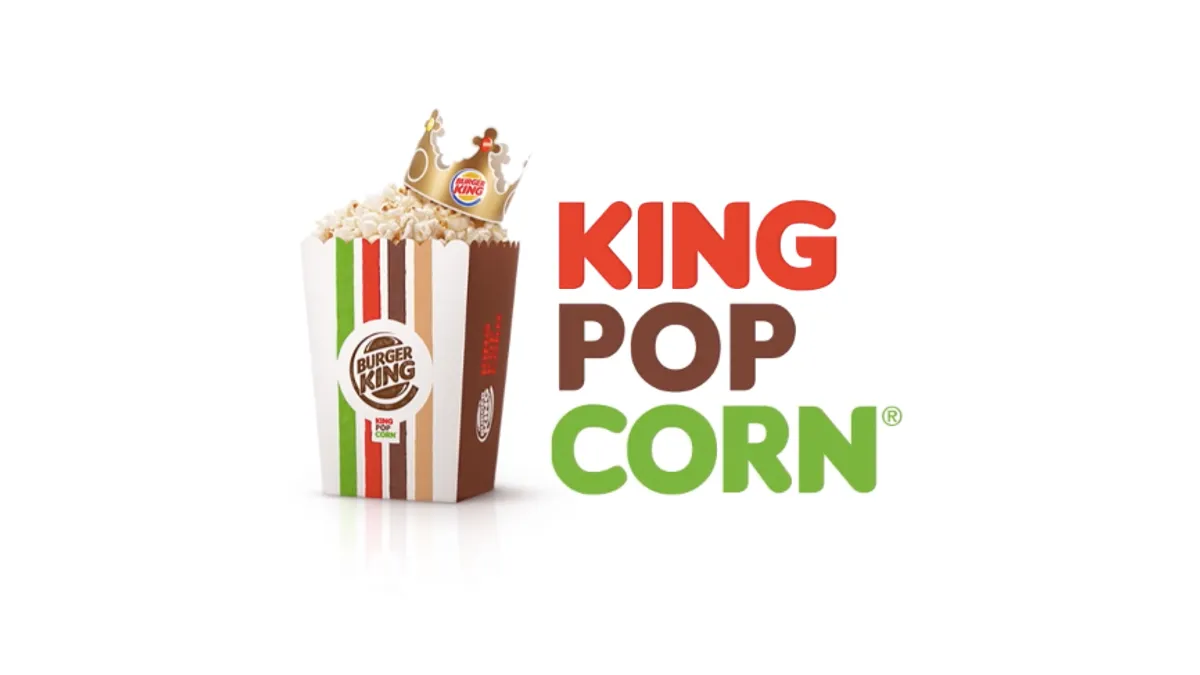Dive Brief:
- Burger King unveiled a King Popcorn product in Peru following a law in the country that allows moviegoers to bring their own snacks into cinemas — as long as the snacks are similar to what the movie theater already sells, per a case study made available to Marketing Dive.
- To comply with the law, which went into effect March 25, Burger King "hacked" the Whopper into movie theaters with a concession item that features a layer of popcorn on top that conceals a Whopper and fries lower down in the container.
- King Popcorn became a trending social media topic and was featured on the news in Peru. Once movie theaters caught on, they tried banning the product. The fast-food chain saw a 40% increase in sales during the stunt.
Dive Insight:
Burger King has recently become bolder in sharing its opinions on laws and regulations through its marketing, with the King Popcorn stunt presenting Peruvian consumers with a creative way to get around specific rules about what food is or isn't allowed into a movie theater. Such sly marketing has appeared in the U.S. as well, with the chain in January releasing a video illustrating the possible negative effects of the pending repeal of Net Neutrality. For that effort, Burger King also asked customers to sign a Change.org petition, "Save Net Neutrality."
The King Popcorn stunt shows that, beyond raising awareness, these kinds of tactics can deliver results, both in terms of sales and also by thrusting the brand into the spotlight of social media. Embracing a cause — whether it's the fight to save Net Neutrality or simply a means to get around pesky movie theater rules — can help marketers engage with consumers and foster loyalty over the long term. A recent study from Kantar Consulting shows that brands with a sense of purpose can grow 2x faster than those that don't.
The news comes as Burger King is trying to develop a more distinct personality in a tightly competitive fast-food category, as its marketing chief Fernando Machado told The Drum earlier this week. A standout recent example of this manifesting in its marketing would be a Whopper TV campaign the brand ran last year that hijacked Google Home devices by issuing the "Okay, Google" voice command. The effort, though controversial, generated an estimated $135 million in earned media and a top creative award at Cannes Lion.














